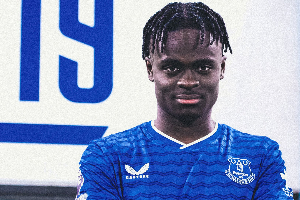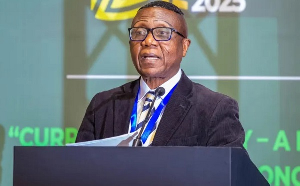Accra, July 28, GNA 96 Leaders of political parties from eight countries in the West Africa Sub-Region on Friday converged in Accra for a maiden dialogue on the consolidation of multi-party democracy to end years of political turmoil in the area.
Delegates from Ghana, Nigeria, Liberia, Sierra Leone, Mali, The Gambia, Benin and Togo are attending the two-day conference being organized under the auspices of the West African Regional Programme of Political Parties being hosted by Ghana's Institute of Economic Affairs (IEA) and the Netherlands Institute for Multi-Party Democracy (NIMD)
The event on the theme: "Political Parties and Democratic Consolidation in West Africa" would tackle key issues like "Financing Political Parties=94; "Improving the Quality of Multi-Party Democracy in West Africa=94; "Political Parties and Elections"; "The Linkage Between Democracy and Development" and 93Political Parties and Political Stability in West Africa".
Vice President Aliu Mahama, who opened the conference, observed that for the first time in the history of West Africa, political parties and not the military had become the political instruments for power alternation.
"The political parties we have now have replaced bullets with ballot boxes," he said, and lauded the conference for shattering the walls of isolation that had separated political parties in the Sub-Region.
Vice President Alhaji Mahama cautioned, however, that the parties had not discharged their responsibilities with perfection, pointing at the often exaggeration of differences.
He stressed: "The political antagonism between leading opposition parties and ruling parties can sometimes be so pronounced that they appear to be sworn enemies rather than political opponents." Vice President Alhaji Mahama noted that political parties formed to reflect ethnic or other factional interests posed a threat to national integration and cohesion, adding: "Election results have frequently mirrored these cracks in our body politic."
He also expressed dissatisfaction about the proliferation of small parties, which found it difficult to create a formidable political force.
Vice President Alhaji Mahama said major problems, which hampered the forward movement of political parties was lack of internal democracy and the hijacking of the form of structures of decision-making by the invisible financiers of parties, who called the shots. He attributed the problem to the absence of a credible regime of public funding.
"By far the single most serious shortcoming of our political parties is the lack of ideology or clearly articulated political philosophy. The unfortunate consequence is that many political parties are identified either by their ethnic or regional bases of support or from the origin of their main national leaders.
"As a matter of fact political parties should not be trapped in the prison cell of our political weaknesses," he said.
Vice President Alhaji Mahama hailed the democratic process in Ghana as a shining example in the Sub-Region.
"All our people and even visitors to our country, whether they come for a brief visit or a much longer stay cannot help but to feel the spirit of democracy," he said attracting cheers.
"Let me sound a brotherly warning to our brothers and sisters from other West African Countries - If they catch any infection during their stay in our country, it will certainly be democracy," he said. Dr Charles Mensa, President of IEA, said politics was a means to an end and charged the political parties to acquire power to meet the legitimate aspirations of their people.
Mr Arie Van der Wiel, Netherlands Ambassador, suggested the need for the District Assembly concept in Ghana to be politicized, saying a local election without the political parties was like the Ghanaian meal - "Banku without okro".
He said indifference of the political parties in what happened at the local level would weaken the base of the country's democracy. Mr Roel von Meijenfeldt, Executive Director of NIMD, said political stability in a multi-party democracy in West Africa needed to be consolidated.
The opening ceremony attracted a number of people including members of the Diplomatic Corps, the Clergy, Chiefs and Opinion leaders mainly from Ghana. 28 July 05
Politics of Friday, 28 July 2006
Source: GNA












